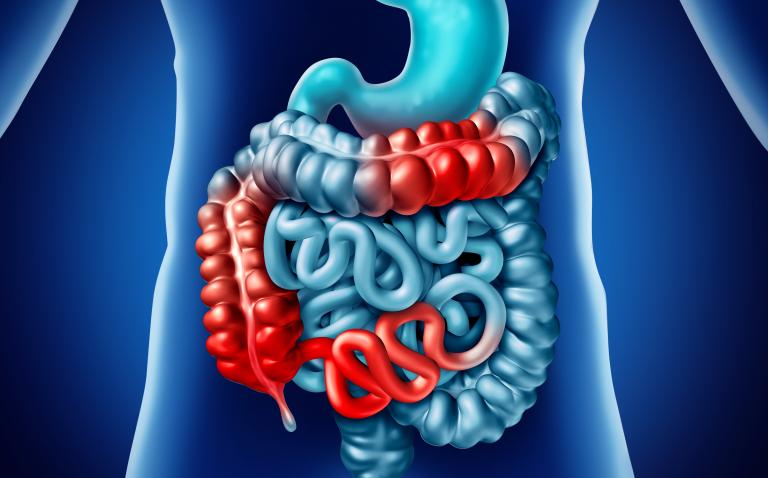Janssen has announced new three-year data from the IM-UNITI study, which demonstrates the continued efficacy of ustekinumab in improving clinical remission rates and shows ustekinumab to be generally well-tolerated in patients with Crohn’s disease.1
The data from the IM-UNITI trial, which will continue for a further two years, were presented today at the 26th United European Gastroenterology Week (UEGW) congress in Austria, Vienna.
“These new three-year results from IM-UNITI are encouraging because they show the important role that treatment with ustekinumab can have in helping Crohn’s disease patients to achieve long-term clinical remission,” said Professor William Sandborn, Director, Inflammatory Bowel Disease Center, University of California, San Diego, USA. “Clinical remission is an important goal during treatment as patients have an improved quality of life and wellbeing when they do not need to worry about a flare up.”
These data are the first to be presented from the three-year assessment of subcutaneously (SC) administered 90 mg ustekinumab in Crohn’s disease. Overall efficacy assessments at week 152 demonstrated that 60.3% of all randomised ustekinumab-treated patients who entered the long-term extension study were in clinical remission. Furthermore, 68.8% of these randomised ustekinumab treated patients had demonstrated a clinical response.1
The key study findings for different dosing regimens found that 61.9% of patients who were randomised to receive 90 mg ustekinumab SC every 12 weeks (q12w) and continued to receive this dose in the study extension were in clinical remission. For those patients who were randomised to receive 90 mg ustekinumab SC in the every eight week dosing regimen group (q8w) and continued to receive this dose, 69.5% of patients were in clinical remission.1
The study also found that, of those patients who were naïve to TNF antagonist therapy and treated with ustekinumab, 67.6% were in clinical remission at week 156.1 This demonstrates that patients who have not yet received TNF antagonist therapy (the most commonly prescribed class of biologic treatments)2 could benefit from ustekinumab treatment. Further to this, of those ustekinumab treated patients who had previously failed (that is, who were refractory to) or who were intolerant to TNF antagonist therapy, 48.4% were in clinical remission.1
Dr Jaime Oliver, MD, Janssen Therapeutic Area Lead, Immunology, Europe, Middle East & Africa, Cilag GmbH International said, “Janssen is dedicated to helping improve the lives of people living with Crohn’s disease. With that mission in mind, we are pleased that these study findings indicate that ustekinumab can help a substantial proportion of people with moderate to severe Crohn’s disease achieve clinical remission. The IM-UNITI study will continue to explore ustekinumab for a further two years, as part of our ongoing commitment to our patients, innovation and scientific leadership.”
Safety events (per hundred patient years) were not higher amongst all ustekinumab treated patients entering the long-term extension study compared to placebo from week 44 through to week 156. No new safety signals were observed.1
Between weeks 96 and 156, three deaths were reported (one each of acute myocardial infarction, kidney failure and sepsis).1 Additionally, two cases of non-melanoma skin cancers (adenocarcinoma of the small intestine and chronic myeloid leukaemia [CML]) were seen in these ustekinumab treated groups.1
The common (≥1/100) adverse reactions reported in controlled periods of the adult psoriasis, psoriatic arthritis and Crohn’s disease clinical studies with ustekinumab as well as post-marketing experience are: arthralgia (joint pain), back pain, diarrhoea, dizziness, fatigue, headache, infection site pain, injection site erythema, myalgia (muscle pain), nasopharyngitis, nausea, oropharyngeal pain, pruritus (itching of the skin), upper respiratory tract infection and vomiting.3
References
- Sandborn W, Rutgeerts P, et al. Efficacy and safety of ustekinumab for Crohn’s disease: Results from IM-UNITI long-term extension through 3 years. United European Gastroenterology Week (UEGW 2018) 20–24 October, 2018;Vienna, Austria.
- Crohn’s & Colitis UK. Biological drugs: Information sheet. Available at: http://s3-eu-west-1.amazonaws.com/files.crohnsandcolitis.org.uk/Publicat…. Last accessed October 2018.
- European Medicines Agency. (2018) Ustekinumab Summary of Product Characteristics. Available at: https://www.ema.europa.eu/documents/product-information/stelara-epar-pro…. Accessed October 2018.










